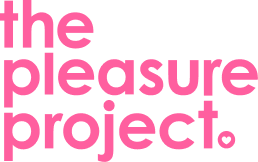The UNAIDS Inter-Agency Task Team (IATT) on HIV and Young People recently published a series of seven guidance briefs on HIV interventions for young people. The idea of the briefs is to provide decision makers with information about how to ameliorate the HIV epidemic, based on the existing body of knowledge relating to young people. Of course, the UN is a large, bureaucratic organization that sometimes seems to be at the opposite end of the spectrum from the youth it claims to be targeting. However, there has also been a clear movement within the international organizations toward a more youth-friendly and, dare I say it, pleasurable approach to health.
Of course, these briefs don’t come right out and recommend a positive approach to preventing HIV, but they do have some promising hints, like:
What types of life skills do young people need?
~Communication skills to discuss sex, contraception and condoms with partners, parents and other adults
~Self-efficacy to:
• Recognise the risk of different behaviours, including having unprotected sex, having multiple partners and having sex with older, more powerful males
• Recognise in advance the situations that might lead to HIV or STI risk behaviours
• Use condoms and contraception correctly and consistently
~ Negotiation skills to be able to refuse or delay sex or negotiate condom use
~ Positive values and attitudes towards the use of male and female condoms and contraception
(from the Overview)
Believe me, I can find plenty of things to criticize about the about excerpt. However, to focus on the positive, it’s great to see that they’ve included several things. First, “communication skills to discuss sex”… this is great, and an essential part of making safer sex sexy is to be able to talk about it, and to feel comfortable in those discussions. And so it fits perfectly that negotiation skills appear alongside the communication skills.
But perhaps most promising is the explicit mention of “positive values and attitudes”. One of the most commonly cited reasons cited for not using condoms is the negative perception that they decrease sexual pleasure (for instance, see the study in my recent post). However, we’ve found evidence that this is simply not true, and that when people are taught about safer sex in an erotic way, they’re much more likely to practice it (you can read some examples in our Lancet article). It’s good to see some space opening at the UN, even if they still sound a bit like my grandmother when they talk about reaching young people through “new media including the Internet” (with a capital “I”).

